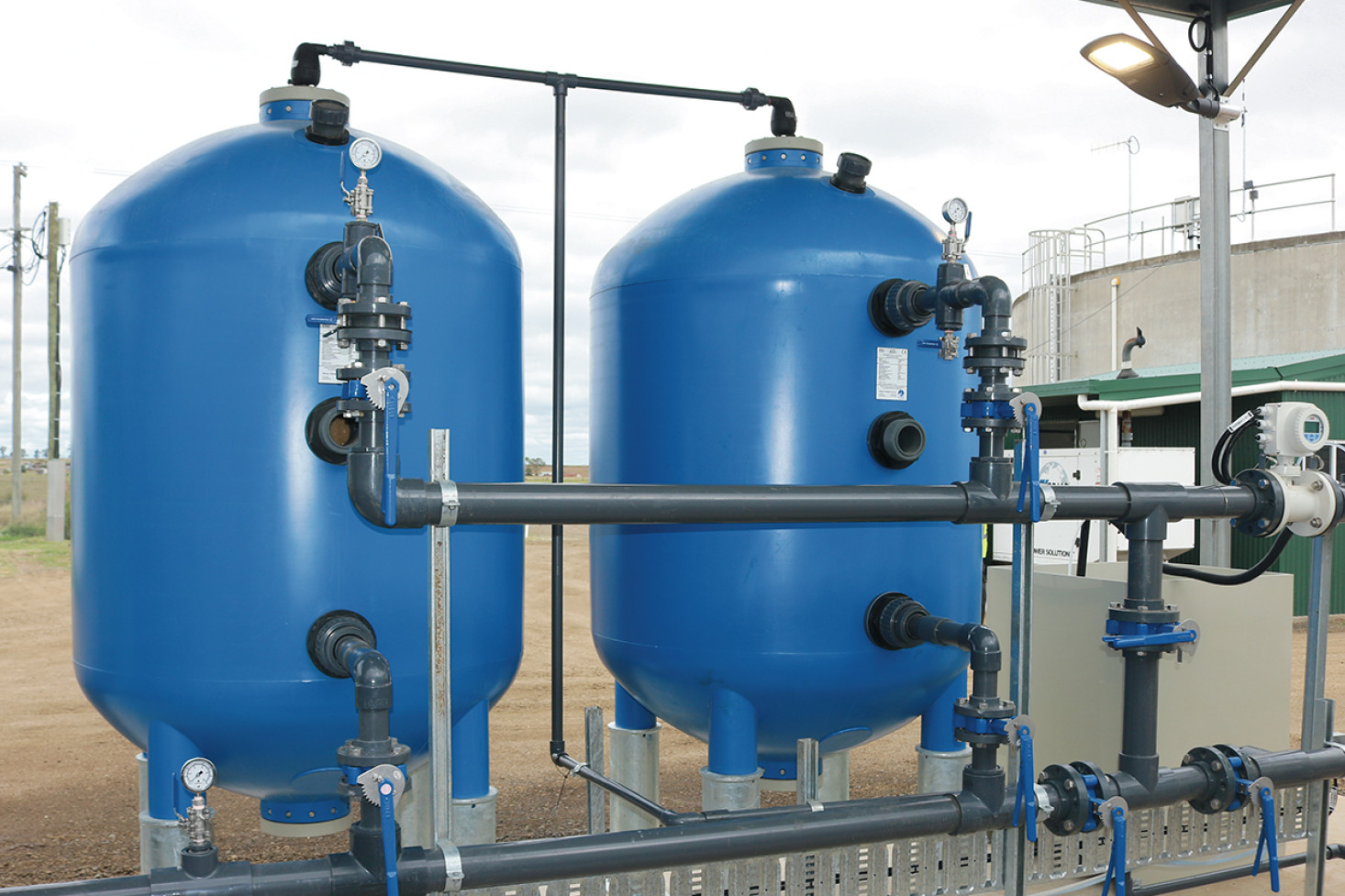General News
3 June, 2024
Our water is safe... for now
Plans by mining giant to use the Great Artesian Basin (GAB), from which Clifton gets its water supply, as a carbon capture and storage reservoir have refused by the Queensland Government.

Farmer and environmental advocacy groups have spent the past few months campaigning against the plan by CTSCo, a subsidiary of Swiss multinational corporation Glencore.
The plan would have seen waste product from a coal-fired power plant injected into the Great Artesian Basin.
Since 2022, Clifton township has drawn its water supply from the Great Artesian Basin through a bore and reverse osmosis treatment plant on Hinz Street.
The Queensland Government’s Department of Environment, Science and Innovation rejected Glencore’s plan last Friday.
Toowoomba Region Mayor Geoff McDonald said Toowoomba Regional Council applauds the decision of the Queensland Government and would encourage further regulation on any applications that may put at risk the lifeline that is the Great Artesian Basin.
“Council is supportive of the robust processes deployed by the Department of Environment, Science and Innovation to ensure the security of GAB water quality and availability of supply,” Mayor McDonald said.
“Toowoomba Regional Council relies on the availability of GAB water to supply several communities, including Clifton, Pittsworth, Millmerran and Cecil Plains.
“The long-term security of this water source is critical for Council and the community.”
Farmer advocacy group AgForce praised the State Government’s decision.
CEO of AgForce Michael Guerin said the decision puts to rest the immediate risk from this specific proposal.
“This project was clearly a trial for future upscaling in this aquifer in the GAB, which Glencore believed had a storage capacity of up to 730 billion litres of industrial waste,” Mr Guerin said.
The GAB is one of the largest underground freshwater resources in the world, as well as Australia’s largest groundwater basin.
As such it’s the only reliable water source available for much of the outback’s arid inland areas.
“So, while we celebrate this State Government decision, our thoughts now immediately go to how to best protect the GAB into the future from such environmental threats,” Mr Guerin said.
“Protecting it properly can only be achieved through more robust Federal Policy, with the current review of the Environmental Protection and Biodiversity Conservation Act (EPBC Act) a critical component of that.”
Another critical aspect for AgForce is for the Federal Environment Minister Tanya Plibersek to now use her power to recall the Glencore application for
re-assessment.
The previous Federal Government deemed this proposal as not captured by the ‘Matters of National Environmental Significance’ or MNES provisions of the EPBC Act – setting a dangerous precedent.
But the Minister has the power to review that.
Otherwise, the precedent set under the current provisions of the Act will potentially allow other applications through or give space for a re-application by Glencore ahead of the promised reform of the Act itself.
“Should the Federal Minister for the Environment call the application back in to be re-assessed, we would gladly acknowledge her leadership in protecting one of the natural wonders of the world,” Mr Guerin said.
“Otherwise, we remain on track for the Federal Court on August 1 to seek a judicial review of that February 9, 2022, decision.”
“In our view, that judicial review is critical to the future of the Great Artesian Basin and all that rely on it,” Mr Guerin said.
Leader of The Nationals and Member for Maranoa David Littleproud said he supports carbon sequestration projects in principle but only under certain conditions.
“The Nationals fully support carbon sequestration projects as a method to support the coal and gas industries abate their emissions but only in the appropriate place and once there is confidence in the science,” Mr Littleproud said.
“The Great Artesian Basin is an important water source for farmers and communities in Queensland.
“It’s imperative we protect it and that proper, thorough assessments are undertaken for any sequestration project.
Mr Littleproud said while The Nationals support carbon capture storage, it has to be in the appropriate place.
“The technology is emerging and we support that, but it has to be done at an appropriate pace where we have confidence in the approval process,” he said.
“At the moment, the Queensland Government determines the process, despite projects involving national environmental assets that should also trigger, under the EPBC Act, the water trigger.
“We have a responsibility to protect the environment.”
Meanwhile, environ-mental groups such as the Queensland Conservation Council completely reject CCS.
“Carbon Capture and Storage is a con,” Queensland Conservation Council Director Dave Copeman said.
“This so-called technology hasn’t significantly reduced emissions anywhere in the world, and this project wouldn’t have either.
“Multinational corporation Glencore wanted to poison the Great Artesian Basin with waste from a coal-fired power plant, just in order to potentially reduce Queensland’s emissions by 0.1 per cent.
“If Glencore is serious about reducing Queensland’s emissions, they need to urgently reduce their astronomical emissions of super-pollutant methane.”
Likewise, Farmers for Climate Action CEO Natalie Collard welcomed the decision by the Queensland Government.
“The idea that we could allow billionaire polluters to risk the clean water that grows our food was ridiculous,” Ms Collard said.
“We need to move to clean sources of energy which don’t pollute our air and water.”
Ms Collard said more than 180,000 people across inland Australia rely on the Great Artesian Basin for water.


